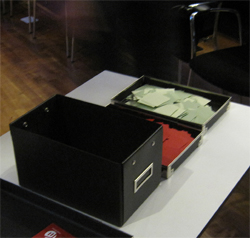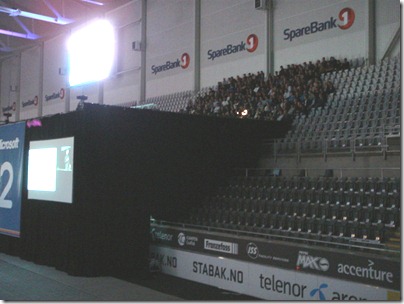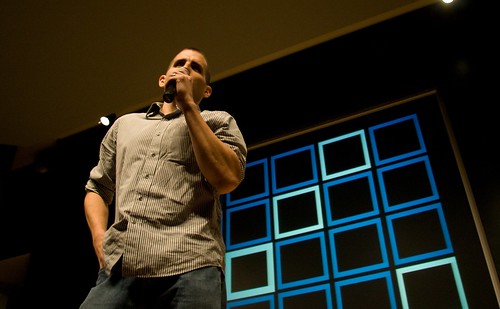Calling bullshit on social media
While I like and use Facebook and Twitter, there’s enough hype and abuse of words like innovation, transformation and revolution around all things social media that a critique is warranted. I hope this post is used whenever someone feels they’re being sold something phony or that makes little sense and wants a skeptical opinion to calibrate where the truth is.
For starters: social media is a shallow term. Is there any anti-social media out there? Of course not. All media, by definition, is social in some way. The term interactive media, a more accurate term for what’s going on, lived out its own rise / hype / boom cycle years ago and was smartly ignored this time around – first rule of PR is never re-use a dead buzzword, even if all that you have left are stupid ones. I’ve participated in stupid terms, from push-technology to parental-controls, so I should know when I see one.
That said, here’s some points not made often enough:
- We have always had social networks. Call them families, tribes, clubs, cliques or even towns, cities and nations. You could call throwing a party or telling stories by a fire “social media tools”. If anything has happened recently it’s not the birth of social networks, it’s the popularity of digital tools for social networks, which is something different. These tools may improve how we relate to each other, but at best it will improve upon something we as a species have always done. Never forget social networks are old. The best tools will come from people who recognize, and learn from, the rich 10,000+ year history of social networks. (Read the Excellent Writing On The Wall: The First 2000 Years of Social Media).
- There has always been word of mouth, back-channel, “authentic” media tools. In Gladatorial Rome, in Shakespearean England and in Revolutionary America, motivated individuals had ways to express their ideas and share them. Call it gossip, poems, paintings or pamphlets, there is a long history of individuals taking action to express opinions through non-official channels. The ease of using these channels changes over time, but they always exist because #1 always exists. Of note, IRC predates some, but certainly not all, of the features twitter is heralded for introducing to the world.
- The new media does not necessarily destroy the old. TV was supposed to kill radio – this was wrong. TV forced radio to change and in some ways improve. The web forced TV, newspapers and magazines to change, and they will likely survive forever in some form, focusing on things the web can not do well. Its unusual for new thing to completely replace the old ones and when they do it takes years. Anyone who claims social media will eliminate standard PR or mass media is engaging in hype, as odds are better those things will change and learn, but never die. It’s wise to ask what each kind of media / marketing is good and bad for and work from there.
- Social media consultants writing about social media have inherent biases. It’s difficult to take posts like this about social media seriously, as it’s written by someone from a social media consulting firm without an ounce of humility or perspective. It’s hard to come across as authentic if you promote a revolution that you personally stand to benefit the most from. Much writing about social media is PR people writing about the importance of PR – see a problem of authenticity here? When did PR, like advertisers, become a reliable source for what is authentic? How is SEO optimization, or similiar techniques for twitter, authentic? When a system becomes popular the greedy will game it and social media is no different. We should be worried when people with PR and advertising backgrounds or consulting firms are leading us in the ways of authenticity or integrity. The Twitter Book, from my publisher O’Reilly, takes a surprisingly reasonable, authentic and low-hype approach to social media I wish was more popular.
- Signal to Noise is always the problem. I’m someone who would rather read 5 or 10 really good things every day, than skim through 50 or 100 mediocre ones. I find much of social media activity consists of people re-forwarding things they were forwarded that almost none of them appear to have read, as they believe they are rewarded for publishing frequently above all else. Using twitter, facebook or nearly any social media service I often feel I’m in the minority since what’s popular is rarely what’s good. If you are interested in quality, and not volume, then the size of your network matters less than the value of what or who is in it. I’m more fascinated by how kottke.org and metafilter.org have kept such high signal to noise ratios for years than I am about most media tools I see.
- All technologies cut both ways and social media will be no different. For all the upsides of any invention there are downsides and it takes time to sort out what they all are. Blogs and Twitter have made self promotion, and self-aggrandizement, acceptable in ways I’ve never seen before, and I’m guilty myself. Is it possible to write or publish without self promotion? I don’t know anymore. I suspect digital tools for social media may have the negative effect of making authentic communication harder, not easier to find, as more people, and corporations, hover right on the gray dividing line between authentic and corporate, or selfish and generous.
- Be suspicious of technologies claimed to change the world. The problem with the world is rarely the lack of technologies, the problem is us. Look, we have trouble following brain dead simple concepts like The Golden Rule. Millions starve to death not because we lack the food, but because of greed and lack of political will. We will largely behave like idiots on blogs and on twitter because we behave that way in real life. Every technological revolution must contend with the fact that we bring our stupidity, selfishness and arrogance along for the ride with our generosity, wisdom and love (12for12k.org being a great positive example). This is true for any new technology we use, and invariably it’s this fact that plays itself out and ruins the current technological wave, setting up the frustrated landscape for the next one. Democracy, steam power, electricity, telegraphs, telephones, televisions, the Internet, and the web have all been heralded as the arrival of Utopia, and although there has been progress in each wave, it seems there are things we want that technological change can not bring to us.
- Always ask “What problem am I trying to solve?” The smartest thing to do with something new is to ask what is it you need it to do for you. Recognize good marketing will not make up for bad products or incompetent services. If your company is marketing itself well to customers, or your social life is fine, perhaps you don’t need a revolution and need something much simpler and more realistic from social media. Spend time figuring out what you need. If you want to experiment and see for yourself, that’s awesome, but know that’s what you’re doing. But above all use whatever media/communication tools or methods work for you, whether they are old or new, no matter what anyone says, including me.
If you liked this post, you might also like my general purpose essay, How to detect bullshit, and How to call BS on a Guru.
Update: @jmichelle posted a response, In defense of social media, on O’Reilly Radar. I responded in the comments.
Update, part 2: six months later, here’s a follow up post: twitter reconsidered.
Update, part 3: A video of me presenting on this topic at Seattle Social Media club (slides):





